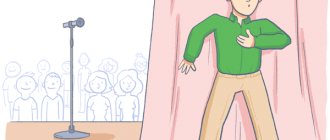Eckhart Tolle, one of the most famous enlightened spiritual teachers in the Western world, has repeatedly noted that we create and maintain problems because they give us a sense of identity. Perhaps this explains why we often hold on to our pain far longer than its ability to serve us.
We replay past mistakes over and over again in our heads, allowing feelings of shame and regret to shape our actions in the present moment. We cling to feelings of confusion and worry about the future, as if this fixation somehow gives us strength. We hold stress in our minds and bodies, potentially creating health problems for ourselves, and accept this state of tension as normal.
There will never be a time when life will be simple and at the same time develop the way you want. But there will always be time to practice taking it for granted. Every moment you live is a chance to let go of your problems and begin to live in peace. Here are a few ways to get started - they apply to all sorts of areas of your life - work, relationships, etc.:
Start keeping a personal diary
There are many benefits to journaling daily. One of them is that it is a great way to clear your mind.
Taking notes forces us to think through what we write carefully enough so that our thoughts are expressed clearly and understandably. Thus, journaling helps clarify them.
A personal diary will come to the rescue if you have problems and need to solve them. Or when you need to understand yourself, use your creativity, heal relationships, develop intuition.
Even greater benefit can be gained from reviewing your diaries from cover to cover over time, especially at the end of the current year. Revisiting old notes can help you review lessons you've learned, evaluate and acknowledge your progress, and figure out where to go next.
The number of aspects of life that you can write about in a diary is truly endless, as are the number of varieties of diaries.
You can write about your goals, dreams, plans, family, obligations, achievements, observations, emotions, dreams, ideas - in a word, about anything.
It is not the quality of emotions that is harmful, but their quantity
Negative emotions in themselves are not harmful, since they are completely natural, normal and occur in every person. It is a large number of bad feelings and experiences that are harmful.
If you are constantly angry, freaking out, offended and blaming yourself for everything, then you are gradually, slowly (sometimes quickly), but surely laying the foundation for the appearance of a serious illness in your body. And if you feel pain, or some kind of illness has already appeared, this is a screaming signal that the time has come to change your life.
Relax your mind
Today it is common to elevate attention and concentration to a cult. However, research shows that rest and defocusing are equally important for normal brain function.
By relaxing and letting your mind wander, you may experience a sudden surge of inspiration, come up with an innovative solution to a problem, discover unexpected connections between different phenomena, and recognize shades where you previously saw only black and white.
So, from time to time, allow your brain to go into energy-saving mode. This will not only help you use it to its full potential, but will also save you from mental fatigue.
The optimal solution is to take 10-minute rest breaks every hour. Plan your schedule around these intervals.
During your break, do something relaxing.
Listen to music, draw, cross stitch. You can just take a walk and dream. The main thing is that you do not feel stressed or think about a task that requires concentration.
Be sure to give yourself longer breaks - free evenings, weekends, annual vacations.
Psychological advice
Living for more than two weeks in a swarm of obsessive thoughts is dangerous. We definitely need to start driving them away.
Release your anger
Helpful tips:
- Try to throw out negative emotions: write and burn, scream into a pillow, cry, break plates.
- Completely immerse yourself, “live” a bad thought. Work through every negative emotion, experience all possible scenarios. The brain is probably looking for a way out of a difficult situation.
- Realize that the government, boss and wife are not to blame for bad thoughts. Take responsibility for your life.
- You can drive away bad thoughts by focusing on the present. You shouldn't live in the past.
- Often the reasons for a depressed state are the meaninglessness of existence, lack of mission and goals in life. It will be very useful to sit down and figure out what you would like to live for, what kind of life you can dream of and how to achieve it.
- Listen to music and sing. However, you should not include heavy rock and metal, so as not to achieve the opposite effect. Classics have a positive effect on the psyche; singing can relieve suppressed emotions.
- Keep a gratitude journal. Every day, write down any little thing for which you can say thank you to the world and those around you.
- Accept the situation if it cannot be changed.
- Switch to proper nutrition. Eating heavy food at night can result in poor sleep and worries about what it can mean. There are natural antidepressant products. These include banana, chocolate, honey, vegetables and others.
- Try to avoid negative information. Don't communicate with people who complain all the time, stop watching the news.
- Start every day with positive thoughts and attitudes.
- It’s easy to remove negative thoughts if you develop the habit of looking for positive aspects in everything.
Now that it is clear how important it is to get bad thoughts out of your head, there should be no problems with motivation. To rid your mind of negativity and life from many problems, you should engage in the formation of healthy thinking
Get organized
Raise your head and look around. What do you see? Mountains of documents? Rubble? Cluttered shelves and cabinets? A whole box of projects to take part in; instructions to be studied; queries that need to be answered? What's on your monitor? An inbox full of unread messages?
The physical environment also affects the ability to think clearly. In chaos, it is very difficult to concentrate and prioritize. So spend a little time getting organized—on your desktop and other horizontal surfaces, in your cabinets and drawers, on your computer and phone.
Remove unnecessary contacts and photos, throw away everything unnecessary, put things in their places, sort documents, answer letters. By creating order around you, you will immediately feel relief.
Books that will help you realize your needs:
Are you okay: A book about how not to be with yourself and not to be with others
Not available
Alina Adler
More details
Book characters visiting a psychotherapist: Walking with a doctor through the pages of literary works
690 rub.0 rub.
Claudia Hochbrunn
0 pcs.
Book characters visiting a psychotherapist: Walking with a doctor through the pages of literary works
- Soft cover 690 rub.
Recipe for Happiness: Treat yourself three times a day
690 rub.0 rub.
Ekaterina Sigitova
0 pcs.
Recipe for Happiness: Treat yourself three times a day
- Soft cover 690 rub.
Triggers of impulsive disorder
What? Inconvenient design, open furniture surfaces
Any plane other than the floor is a tempting platform to throw something there. It seems like it’s just for a while, but it turns out to be a constant mess. So pieces of furniture such as hanging shelves, coffee tables, chests of drawers in the hallway, and bedside tables are potential places for impulsive clutter. The trick is to either remove such planes altogether, or raise some shelves above eye level. The brain is lazy, and this can motivate it to put the thing back in its place.
Another inconvenience can be ensured by separating functional areas from each other at least at arm's length. For example, when sitting at your desk, it is impossible to reach the sofa - this way there is a greater chance that books and a laptop from the table will not begin to take over the surrounding areas.
Unload all tasks from your head
Have you ever been unable to fall asleep because of obsessive thoughts that craved your attention? Perhaps you suddenly remember unfulfilled tasks or promises several times a day?
The fact is that our brain naturally remembers and retains all interrupted and unfinished actions. These are called incomplete cycles.
If they are not dealt with, they accumulate and cause overload, which leads to stress and anxiety. To gain control, you need to make one very important change in your behavior: learn to not hold anything in your head.
For this you will need:
1. Calendar. It should include a simple template that shows the months and days of the week. This is the basis where you can store information about what needs to be done at a certain time and what will happen on specific days.
2. List of next actions. It will include specific small steps that you need to complete as soon as possible. Deciding where to record an activity (calendar or list) depends on whether it can be assigned a specific time or date.
Keep in mind that if an action takes less than two minutes, it must be completed immediately. Get rid of it, close the cycle and get it out of your mind!
3. List of projects. A project is any result that requires more than one activity or session of work to achieve.
At least once a week, you should look at this list and determine the next steps for each of your projects.
4. “Someday/Maybe” list. These are all problems that you can solve later, but not now; things you would like to try under favorable conditions.
This includes movies you want to watch; books you wouldn't mind reading; trips you dream about; wish lists.
5. A checklist is a list of actions or items for certain situations, a description of repeated procedures (for example, “How to pack a suitcase for a trip,” “List of things for a backpacking trip,” “Possible gifts for the holidays”).
Creating a checklist can save you time and make your life easier in the future. You won't have to waste energy making the same decisions over and over again.
6. Folders for deferred items. This will include anything that does not involve action and may be needed later. These are driving directions, recipes, guarantees, driver's licenses, passwords to websites, contacts, useful articles, and so on. They might come in handy one day, and if you don't have them, you'll have to spend time looking for them.
By creating such a system, you will give your brain freedom to be more productive and creative.
To stay in control, periodically review all lists, check the contents of the system and keep it up to date and in working order.
Improve your sleep
Poor sleep can increase stress levels and deprive the brain of the ability to rest and repair itself. Different sleep patterns, awakenings in the middle of the night and long periods of insomnia, or just plain lack of sleep - all this can cause temporary brain fog. The advice here is simple: you need to go to bed at the same time every day, preferably at 10/11 p.m.
A 2022 study from Stanford found that going outside for a few minutes early in the morning as the sun rises and taking a short walk as it sets is good for our brains. This helps align the natural sleep-wake cycle, allowing the brain to go into “self-cleaning” mode at night.
Remove everything unimportant from your life
Have you ever suffered from overwork? Did you feel like you were paying a lot of attention to the little things? Have you been constantly but fruitlessly busy? Did you feel like you were running as fast as you could, but weren’t moving? Most likely, too much unnecessary, distracting, unnecessary or unpleasant has accumulated in your life.
Ask yourself: “What do I really want to achieve? What do I strive for most? What is truly important to me? Having determined your priorities, try to concentrate on them and get rid of the rest. There will be less chaos in your life - and your head.
You need to be able to refuse not only activities that you don’t like, but also things that you like.
For example, it is better to choose one hobby and give it maximum attention than to be torn between ten different hobbies.
Instead of getting overwhelmed, think about what steps you need to take to get closer to your main goals.
Books about arrangement of space:
100 tips for the mayor: A book of recipes for a good city
RUB 1,590 RUB 0
Ilya Varlamov
0 pcs.
100 tips for the mayor: A book of recipes for a good city
- Hardcover RUB 1,590.
Interior design: How to start your own business
890 rub.0 rub.
Natalia Mitina
0 pcs.
Interior design: How to start your own business
- Soft cover 890 rub.
Project “Children's Room”: Design tips for creating a modern children's room
RUB 1,090 RUB 0
Yulia Parshikhina
0 pcs.
Project “Children's Room”: Design tips for creating a modern children's room
- Hardcover RUB 1,090.
Action Triggers
What? Conveniently placed items where they are used: apple, yoga mat, face cream
The “call to action” tool is used by advertisers, but calls to action can also be placed in the home space. Surely you've probably placed a trash can in front of your front door so you don't forget to throw out the trash. Such calls can be thought out everywhere: cleaning supplies next to the cleaning area, trash cans next to the garbage, books next to the chair, a water bottle next to the work desk. Artists often prepare their canvases in advance so that their luminous whiteness calls out and is always ready for sudden inspiration.
Think through your day's scenarios in advance. The morning scenario could be: bed → bathroom → yoga mat → kitchen → wardrobe → hallway. Where is the place for a smartphone? Not before the wardrobe, otherwise the bustle of nightly messages or yesterday’s alerts will overwhelm you after waking up and the sharp need for dopamine will displace both yoga and a healthy breakfast from your daily plans.
Rest triggers
What? The position of the desktop relative to the routes of movement in the apartment
Position your workplace so that your back is “protected”: no doors, corridors, windows, or migration of household members from the refrigerator to the TV behind your back. Also, stability can be added by clear compositional planning of space: clear dominants and accents. Proper work with light will allow you to concentrate attention on the desired area.
Goal triggers
What? Dream reminders, mockups and associative images
Place items in your apartment that are associated with your dreams and goals. Maybe it's a model of a house you'll build, or a mock-up of a book you'll write. This will serve as a reminder and help you move towards your goal.
Distance yourself from your thoughts
Are you haunted by past mistakes and conflicts for which you cannot forgive yourself? Does consciousness itself replay the same memories? Or is your head filled with anxious thoughts about the future? Or maybe you constantly hear the voice of your inner critic? Try the following exercise.
Sit up straight and relax. Concentrate on your body and breathing.
Now focus on your hearing. Take in all the sounds that surround you. Feel how they arise and how some displace others.
After five minutes, switch to your thoughts. Watch them as extraneous events that arise and disappear on their own, just like sounds.
Observe them detachedly - as if you were watching a movie or looking at clouds floating across the sky. They come and go. Notice how these thoughts make you feel, but don't try to change anything.
Watching the seething mind is like watching a mischievous child. When a child notices that they are being looked at, they act less, and our brains react in a similar way.
The activity automatically decreases, which ultimately brings a feeling of peace and helps clear the mind.
How to throw it away?
Stuff all this stuff into a bag or bags so that it is not visible.
Next - give it to the homeless, give it to your neighbors at their dacha, give it to someone who needs it ! This is very cool - since you seem to a good deed for someone
Or just throw it away. Take it to the trash.
It is very important!
Feeling like you are holding something in your head?
Do it one-two-three.
You count to yourself in your head - one-two-three and begin the action. Those. despite all thoughts and feelings.
Habit of thinking badly
We all really want to be positive. Cheerful. In a good mood. No one in their right mind would say: “I want to be negative and bad!”
However, excessive concentration on negative thoughts that becomes pathological and becomes a way of life can have deep psychological causes.
A negative person has many advantages. And the neighbors will hear about the fatal illness of the second cousin of my mother’s neighbor in the country, and you can always count on the help of relatives and friends, and you can always count on special treatment at work as the most unfortunate person in the world, etc.
Think about what benefits you get from your negative thoughts? Be honest with yourself.
If benefits are still discovered, try to satisfy your needs in a different way, without focusing on others. On one's own. Without benefit, the symptom will disappear.
TATYANA BELOKONSKAYA, specially for Evrikak.ru











